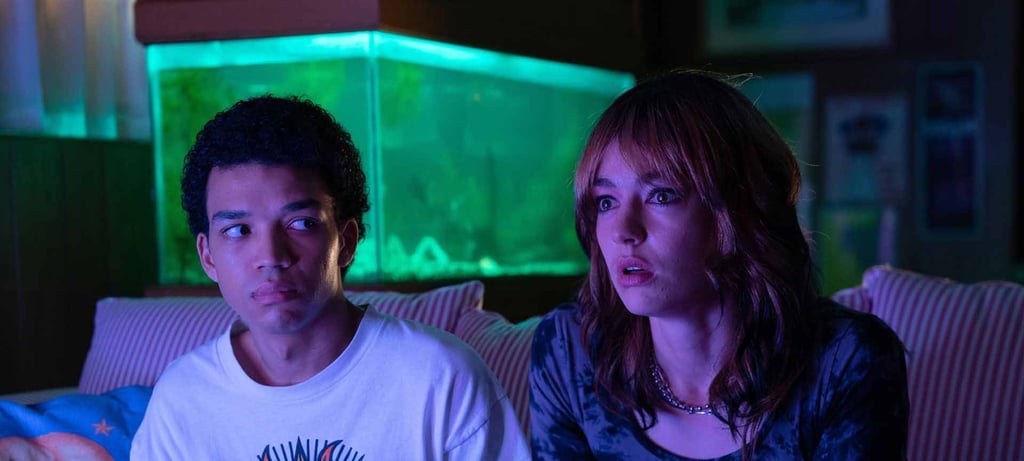Review: I Saw the TV Glow
Part queer coming-of-age, part Lynchian nightmare, part surreal fandom fever dream - interesting, and unsettling. ★★★★
8/1/20242 min read


I'm not afraid to say that I did not understand a lot of this movie. Powerful, perplexing, and deeply uncomfortable, Jane Schoenbrun’s second feature defies neat categorization or explanation: it’s part queer coming-of-age, part Lynchian nightmare, part surreal fandom fever dream.
Set in the mid‑1990s, the story traces Owen and Maddy, two outsiders brought together by their fascination with The Pink Opaque, a low-budget cult show in which psychic teen heroines face Monster-of-the-Week threats. Their retro fixation becomes more than escapism, beginning to envelop their identity, explored as a way to articulate internal truth in a world that offers none. As their lives intertwine over VHS rewatches and secluded hang-outs, reality blurs into fantasy, as suffocating suburbia bleeds into fevered imagination.
Visually, the film is intoxicating. Eric K. Yue’s cinematography warps suburban emptiness into a neon-lit dreamscape, punctuated by unsettling vignettes — chalk-scrawled streets, distorted ice-cream trucks, and glowing CRT TVs — with an uncanny, Lynchian sensibility. Edited with delirious rhythm, the narrative drifts through time — two years, a decade, twenty years — so that grief and nostalgia feel interchangeable, and time itself becomes oppressive.
Justice Smith anchors the film with a haunting, restrained performance as Owen. Whether in green suburban lawns or dimly lit bars, Smith's portrayal carries both raw vulnerability and a frozen internal quiet, until culminating in a devastating sequence that is simultaneously cathartic and shattering. Brigette Lundy‑Paine’s Maddy commands the screen in a way that’s equal parts distant and magnetic, a guiding force in Owen’s unraveling and eventual awakening.
This isn't a comfortable experience. The plot resists full coherence; dream sequences feel deliberately underwritten, and the ending remains ambiguous and unsettling. But those frustrations feel necessary as the film wrestles with themes of identity, fandom, trans existence, and the perilous need to belong, in a pre‑internet age where the only refuge was the glow of a flickering screen.
If you want tidy narrative or emotional comfort, whatever you do, don't look here. But if you want to feel something elemental, strange, and unsettlingly real, I Saw the TV Glow demands an anxiety-inducing watch.
Subscribe for Film Insights
Get the latest reviews and discussions delivered monthly.
CONTACT tom.christopher.writer@gmail.com
© 2025. All rights reserved.
